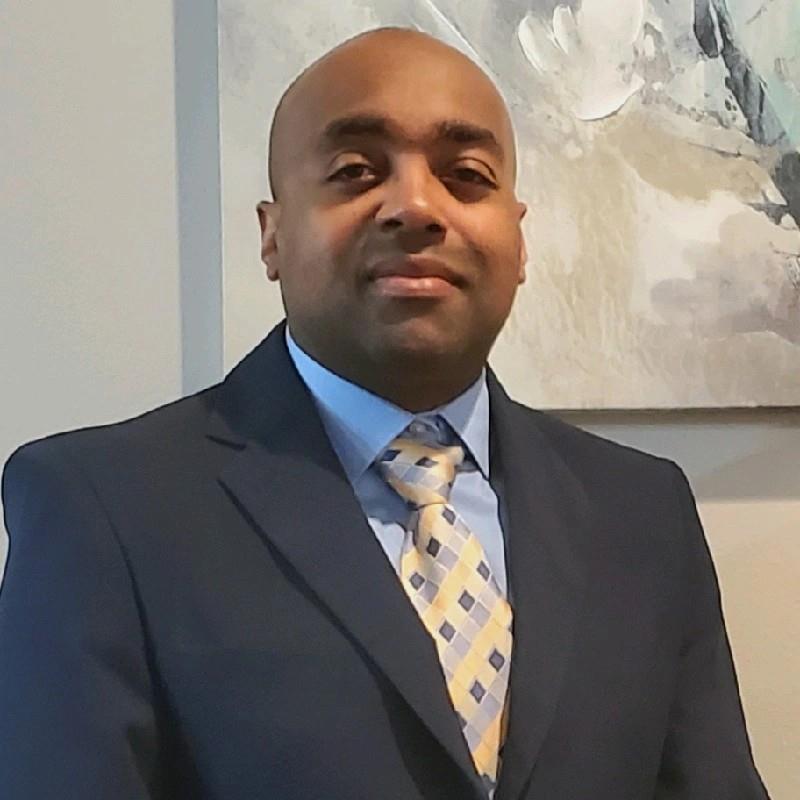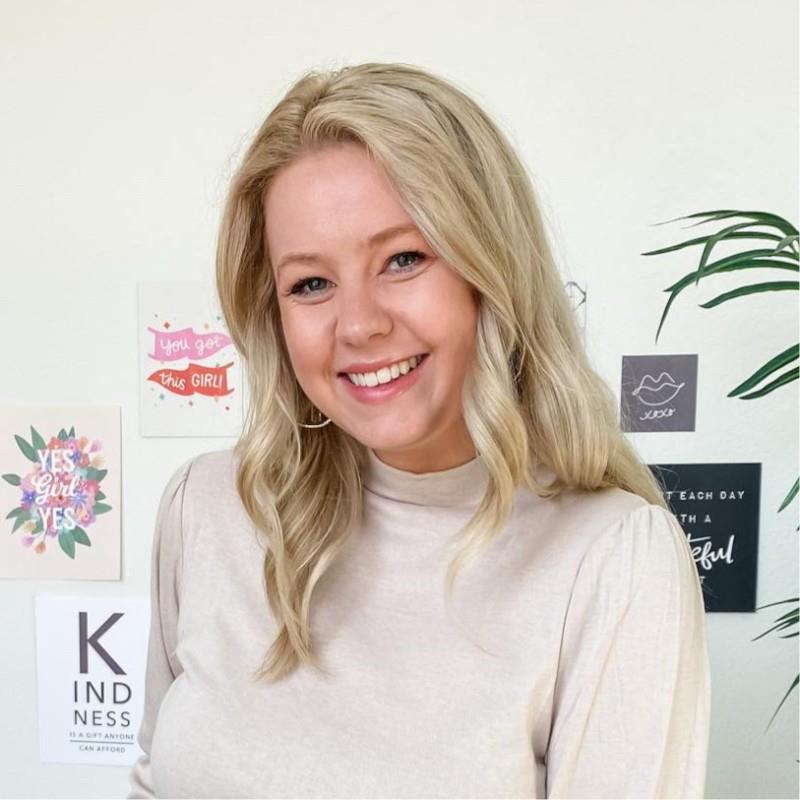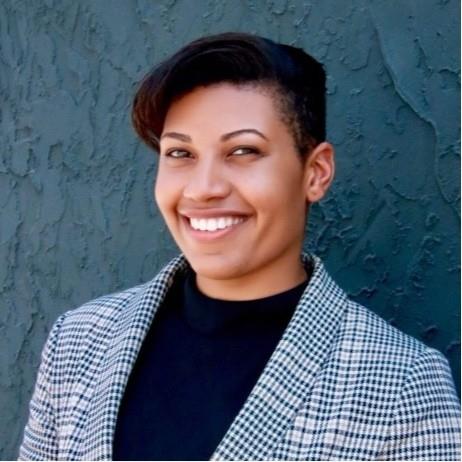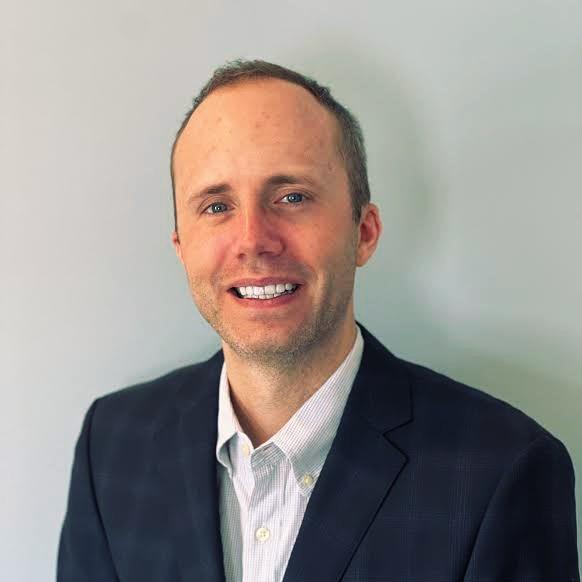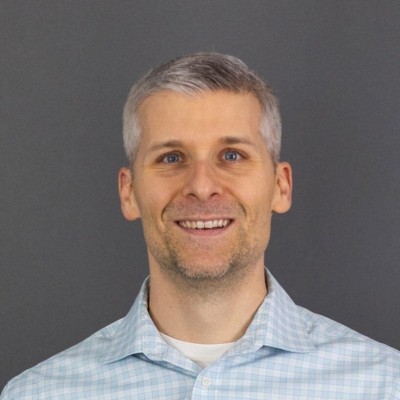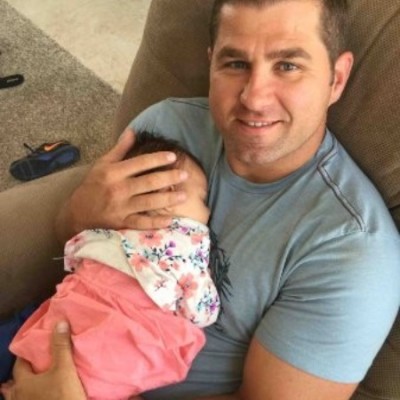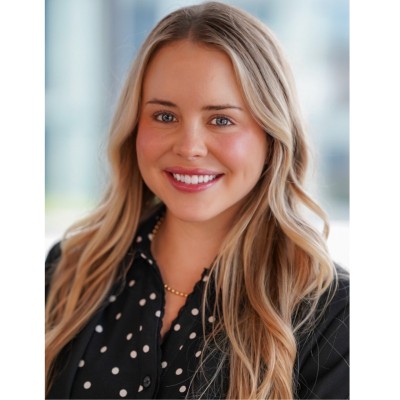If you’re an orthopedic sales rep or any medical sales rep for that matter, you can’t have a bad day because your attitude sets the tone for the rest of the day. Today, Joe Testa tells us why attitude matters so much in the profession. He sits with Samuel Adeyinka to share snippets of the orthopedic sales rep’s life and the valuable role they play in the industry. Growing up in orthopedics can be very difficult because you work with one of the busiest people in the industry, the orthopedic surgeons. Joe shares that time is his greatest asset; he tries to create balance by selling more and spending time with his family more. Joe also talks about the future of orthopedics and how big companies hiring to get in front of them will create a huge vacuum in the future. Check this episode with Joe Testa on the orthopedic sales representative’s life.
The CE experience for this Podcast is powered by CMEfy – click here to reflect and earn credits: https://earnc.me/ZUk6SN
—
Watch the episode here
Listen to the podcast here
The Orthopedic Sales Rep Life With Joe Testa
We have with us another special guest. He goes by the name of Joe Testa. If you’ve been in medical device sales for any period of time and you’ve spent any amount of time on the LinkedIn platform, then Joe Testa is not an unfamiliar name. He’s an influencer on the LinkedIn platform and he makes great content. In this episode, he’s going to share what it means to be an orthopedic sales. We get deep into what the industry was like when he first entered what it is now. We talk about biologics.
We talk about what it means to be this rep, how you got to show up, how demanding it is, and what life you lead when you’re leading the life of an orthopedic medical device sales rep. I’m not going to spoil it for you. I’m not going to say anymore. I’m going to save it for the interview. As always, we do our best to bring you guests that are trailblazing, pioneering, and doing things differently in the medical sales space. I’m so happy to bring this episode to you. I do hope you enjoy this interview.
—
Joe, how are we doing?
I’m doing great. How are you, Samuel?
No complaints. Why don’t you tell the audience who you are and what you do?
I’m Joe Testa. I work for a company out of Gainesville, Florida. We’re a small orthopedic recon company that competes against some of the giants. I run a team of three people. I work in West Palm Beach, Florida.
You’re living the good life. I’m a Californian. You’re a Floridian. We don’t know seasons that much and that well.
I spent three years in San Francisco in sales right out of the gate. That was a medical device, too, but it was in anesthesia and respiratory. I know that area, not SoCal, but I know North Cal. I’m in there a lot.
I love the fact that you’re on the show because I think you can clear the air. Many people want to get into this industry and a lot of people want to get into medical device sales. When I talk to some professionals, the ones that want to get into medical device say, “I want ortho. I want sports medicine. I want spine.” They’re all a little bit different. Why don’t you tell the audience specifically, what is ortho sales and what you actually sell?
The industry has changed in orthopedics quite a bit. As more is happening and as companies acquire more businesses, what’s happening is they’re breaking off divisions. I started off years ago as a full-line rep. I carried recon, trauma, biologics, and pretty much the full bag for anything outside of spine and face. Currently, the way it’s developed, the logical path for you to become a full line rep now is few and far between. Most guys are either trauma reps, recon reps, onsite specialists, or biologic reps. Having that full-bag opportunity is like a unicorn. There are not a lot of guys doing that anymore when you’re working for the big three.
What I did is I started out doing that. What that is, is seeing a lot of hips, knees, and shoulders every day. Those are our elective cases. We do trauma after 5:00 or whatever trauma cases go, there’s an out-on-list. Your schedule is very much like an orthopedic surgeon. If you’re doing full line, what you would do is you get up. If you read whatever I write typically, it’s like you get up early in the morning, and then the orthopedic surgeon gets home, which could be at any time.
You said a couple of things that I want to address. For the audience, what is biologics?
Biologics is something that would be like a bone void filler. For me, I don’t want to get into the details as far as all the different product lines, but there was a space. We were in a revision or in a trauma setting where a bone, after you’ve put it together or after you’re trying to reconstruct it, is still missing. We can’t reproduce bones. Orthopedics isn’t a life-threatening service.
When we’re under surgery, we’re worrying about the patient’s life, but what we’re worrying about is trying to reproduce what the bone looked like prior to it being fractured or to it having arthritis. Typically, we’re able to put that bone back together. With biologics, if you want to go soft tissue world, you could go into a lot of different what biologics is. The way in which I carried it was through bone fillers. We’d fill a little gap and trauma fracture.
You said the industry has changed a bit. It used to be everybody was carrying everything. Now, it’s become so nuanced and specialized. Reps are particular to one space within medical device sales. For example, like you said, biologics, recon, or ortho with hips, knees, and joints. How has it changed for you though? Would you say that nowadays, it’s much easier to work in this space selling a smaller product line? Is it not what you think and it’s actually harder? Talk to us a little bit about what that shift has been for you, how you sell, and how you enjoy the job.
You had Jacob Mclaughlin on not too long ago. I tuned in to that episode. It reminded me a lot of what my life used to be like at 26 and 25 when I started. You’re asking me what this industry looks like now. For me, that’s a much different answer than maybe he would give. He’s excited. He’s at the beginning of something very creative. He’s running at a different pace than someone that I would. I speak towards that and I still do that.
For me very much, it’s going like, “That was cool and exciting,” but then work that hundred-hour week with kids, baseball practice, soccer game, or a recital at school, so then scaling your game becomes a little tougher. Now I’ve learned time is my greatest asset, so I’m trying to create more time both to sell and also to create for myself and my family.
Growing in orthopedics is very hard because you have the schedule of an orthopedic surgeon who is some of the busiest guys on the planet. For me, it’s been able to teach and scale a team to try and reproduce something that we figured out what our method was. I have several partners that are on my team. What we do every day is try to get out and get after it. At the end of the day, trying to scale it long-term is something that’s one day at a time. It’s one step at a time. It’s not something that you’re going to wake up and go, “I have the answer for it.” Orthopedics is like a quarter-mile run because every day you got to start over. We got seven cases in one day. Our goal is to prepare the doctor to hit the shot.
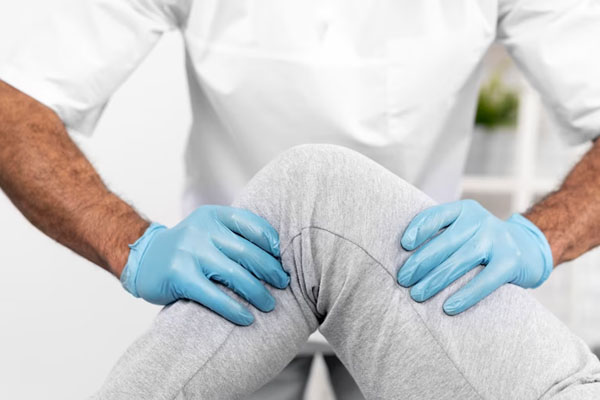
I like to refer things back to sports. I’m a baseball player myself. I play a little bit of golf terribly. An analogy that someone once told me, and I think it makes sense is, for a lot like a professional caddy. We have the greatest spot and greatest fans in the world for these orthopedic surgeons. We’re front-row seats every single day and every single case. What I try to talk about and what I try to do and teach my team is, “What you’re trying to do is prepare a theater for the doctors. When they get inside this operating room, everything is set and perfect. The music is right, the room is right, and all the instruments are right.”
When you step out of the way, it’s the perfect reason for the doctor to hit the shot. We don’t scrub in. We’re not able to help other than what our limitations are, which is being professional on our instruments and implants. What we try to do is allow every factor to set the surgeon, to set the scene, and go, “You can go in. You’re prepared to help these patients.”
For me, it’s exciting because I look back at my life and I’m like, “What am I doing?” It’s fast-forward. Once you hit play in orthopedics, after a decade, it’s amazing. I’ve been able to say that I’ve been blessed to see 10,000 people get helped by surgeons. What’s crazy is that I’m not special. There are a lot of guys like me. I’m just the loudest right now.
Fortunately, some opportunities are growing because I’m a voice that didn’t come from anything other than one day I decided to type one thing on the internet. The next day, I think about that and it’s humbling because you don’t feel like you are your number. Every year, everyone looks at it, “Is it quota?” Whatever or however many times. You are your number and you want to abide by that, but there are real people on the table every day.
In orthopedics, you look at it like, “I want to sell.” It’s crazy. If you look at it in a couple of different ways, you could say, “I sold this many dollars.” As a sales rep, that’s what companies want. As a guy that’s running a team, how I’m teaching my young guys. What I’ve learned from guys before me is, “You’re trying to set the stage because we’re helping patients.”
When I get up every day, it’s easy because my mindset is, “What if that was my mom, dad, sister, or brother on the table? Would the instrument speak? Would the implants be there? Will I be missing something?” The answer is no. If it’s not going to be missing that time, then it can’t be missing those other 10,000 times.
That weight as an orthopedic rep, I feel for those people. That’s why typing to the world, people are responding because first, it was like a joke, and now I realize I just spoke to 110,000 people this week. You’re watching the Tennessee vs Alabama game, and then I looked up like, “How many people fit in that stadium?” “It’s 102,000.” “What?”
People are watching.
It’s crazy. Analytically, it’s something special. I’ve talked about that. I think that’s going to open doors for people in areas that don’t exist currently. It’s changing day by day. Creatively, the sky is the limit. I know I’m talking a lot and you want to cut me off, but the reality is I’m super passionate about it. Ultimately, the orthopedic rep, the way I describe it is, they’re unknown. They’re the caddy.
You might remember who won the 2002 Masters, but who was the caddy? They weren’t there. They were there and they had the best seat in the world. They’re still helping out, but they’re not there to hit the shot. We’re there to get everybody prepared and everything necessary, so the surgeons are in their best mindset in order to have a perfect surgery and to help that patient.
[bctt tweet=”Orthopedic sales reps prepare everybody and everything necessary so the surgeon is in their best mindset to prove the perfect surgery to help that patient.” via=”no”]
You say that you guys are the unknown. However, that’s changing a little bit, especially with what’s going on with social media. You spoke to it. You have a voice. You’re being watched. Not just people that want to get in, but surgeons are watching you and hospital administration is watching you. Everyone is paying attention. I think the unknown rep is becoming more of a brand.
It’s a positive thing because it’s setting an example for people that do want to get in and become reps themselves, how they should operate. You’re setting out that example from the mindset with your posts and whatever you talk about to whatever you’re on like this show to what people find that you do. It’s setting a tone and it’s setting an example.
A couple of people right now are doing something that hasn’t been done before. I don’t know if it’s set an example, but it’s definitely carving a path that hasn’t been carved before. There are some unknown tools and surgeons. At the end of the day, we stand and I tell my team, “We’re the greatest team in the world.” Whether we are or not isn’t irrelevant. If we get up every day and believe that, we’re more likely to be perfect through what we do.
The mindset is, if I hire you, you’re joining the greatest team in the world. If you don’t believe that, you can’t join our team. You have to believe that. People laugh at me. Competitors are like, “What do you mean?” After twelve years of continuing to say it, they look at you and they smile now. It doesn’t matter. I’ve learned, even through LinkedIn, people treat me differently when they see me in the hospital because they do see me.
I can’t treat the competitors. I’m not giving out all the secrets for free on the internet, and then they look at my titles and be like, “I’ll come against you.” What I’ve learned is I don’t compete in the same way that I did when I was 26. The doctors don’t see me in the same way. The hospital doesn’t see me in the same way. When I was there a few years ago, I was a different person. Time and experience earn you the right to have a seat at the table to say, “We do it the right way. We try to help patients. I understand the hospital doesn’t feel at times that reps are important. Maybe to an extent, we aren’t, but that doesn’t change the fact of how we’re going to respond to how we need to do our job. If we don’t have the mindset of excellence, then we will fail and that patient is going to suffer.”
[bctt tweet=”If we don’t have the mindset of excellence, we will fail, and that patient will suffer.” via=”no”]
Let’s dive a little bit into the schedule. You kept mentioning that you got to operate like an orthopedic surgeon. Give us an idea of what that schedule looks like. What time are you waking up? For a typical day, what’s happening? From the time you wake up to the time you go to bed, how does it look?
Every day is different. We have our elective cases. Typically, let’s say we work with eight different surgeons given week electively. That doesn’t mean that every week they’re going to have cases because in joints, there are guys that operate every week, sometimes they’re week to week, or every other week. You then have your guys that will be every Monday or every Tuesday with 7, 8, or 10 cases.
For our team, that looks different week to week. This week, we were super busy. Monday through Thursday, it’s a little heavier for us. I have a team of three guys. We’re running three different hospitals. We’re all covering different cases that start at 7:30. For me, I’d get up at 5:15. I’d get to the hospital no later than 6:30. That then gives you an hour to prepare for the case.
That doesn’t change. No matter who you are or what company you work for, you should be there an hour before any case, whether it’s at 7:30 in the morning or whether it’s at 2:00 AM. That way, if there’s an issue, we can stop the patient from going under anesthesia because ultimately, we can’t do surgery without what we need for instruments and implants. We are dead. We have no use to an orthopedic surgeon if our instruments aren’t all sterile and our implants aren’t all there.
Rule one is you should know that probably within fifteen minutes. You always want to know before a patient goes into anesthesia that, “I have my stuff.” When you’ve been at 10,000 plus surgeries, you’ve seen it all. You’ve seen the good, the bad, and the ugly. You try to not learn to experience those bad situations and you try to learn through coaching. In my experience with others are what you’ve seen from another rep over the years and go, “Don’t do that because I’ve seen this mistake.” We try to be robotic.
The best orthopedic surgeons that I’ve worked with are robots. They operate much like that. They get up at the same time, do the same thing, and meet the same thing. They’re superstitious. They want to reproduce. It’s very robotic doing a total joint. During a knee or hip, it’s all step for step. We’re trying to do it as quickly and as efficiently as possible for the patient being under anesthesia. Not in a hurry, but because in the OR and any situation, you want to be efficient. We’re doing the same steps every time. A doctor wants you and expects you to know that flow. Our job is to not at all get in the way of that doctor’s flow so he/she can do what they need to do.
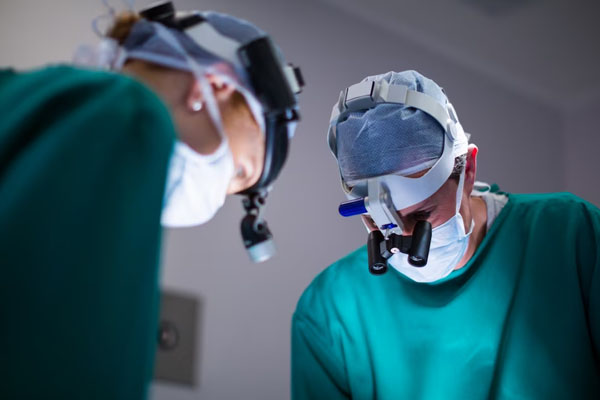
What time is the day ending?
It ends typically around 6:00 or 7:00. I went to dinner with one of my surgeons. The night before that, I went to dinner with one of my surgeons. When you say the day end, is it a surgery day or is it that? Orthopedics is a lifestyle. When you get off, it doesn’t mean you’re off. It means that you’re preparing for the next day, which means you have to get all the instruments clean. For me, I don’t do a lot of daily “move the instruments, move the implant.” The day yesterday ended at 9:00 PM. I got to the hospital at 6:30. I did surgery at 7:30. We went through lunch and training. Friday for me is to prepare for the following week. We have to check all the X-rays and make sure all our instruments for trauma are on the shelves because we have trauma call, which is Friday, Saturday, and Sunday.
In the hospital, some of them run a team during the weekend and some of them don’t. If your trays aren’t sterile, you don’t get to participate in surgery that weekend. The doctors tell you in advance on a call, “Have your stuff on the shelf. If you get a phone call, you need to be there.” In the beginning, it’s like you’re on pins and needles, but ultimately, it’s something that doesn’t end.
It’s not that it doesn’t end, but when you do trauma, I can get a phone call. I don’t do a lot of level-one stuff. Yesterday, I ended at 10:00, the day before was 10:00, and you continue to take it day by day. I can’t look in the past. It sounds crazy, but like I said before, it’s a quarter-mile run. I’m looking at one day at a time.
I have a team of people. I have a guy named Josh Hess who logistically is looking days out. He’s the guy that’s making sure all the implants are ready. Canaan is running around and helping with that. He’s running with me doing more surgery. Josh doing surgery. It’s a cycle. For me, having a team of three, my role is sales, Josh’s role is logistics, and Canaan’s role is to fill in anything outside of that that we need.
A lot of times, that’s sales or doing surgery. Sometimes that’s going in and contemplating. Sometimes that’s being the expert on GPS software. Sometimes that’s helping out another team that needs help. He’s got to go down Monday to Miami and take surgeries because the guy is on vacation. It’s next up and it’s always like, “How can I help out?” We did two hip fractures. We all worked. We all saw surgeons. We did it in different capacities. It’s a lifestyle. It’s every rack. It’s not just us. My competition is doing the same thing.
You’ve laid it out for us. You’ve given us a schedule. You’ve made it very clear that you’re operating with an orthopedic surgeon and it doesn’t end. Your career has been one long day and you’re trying to be more efficient and more consistent, and help your surgeons have better outcomes. You’ve been in it for a while now and you have a team. You’ve seen people and I’m sure you’ve queued in on, “Based on what they’re showing me, I bet they’re going to show up this way. What kind of person is a good fit for orthopedics in a medical device?
As a rep?
Yeah, as a rep.
Who I’ve been looking for quality-wise?
Let me lay it up this way. Right now, our audience are people that want to get into the industry, people that are in the industry, and people that are leading the way. For those that are thinking about making a transition, there are a lot of other reps out there that are thinking about becoming orthopedic reps. There are a lot of professionals out there that are thinking about coming to orthopedic reps. What type of person do they need to be or how should they assess themselves to say, “This is probably something that I can do and do well.”
I think you have to be one of the most competitive people on the planet to be in orthopedics long-term. For people that want to do it for a decade, I’d say that if you aren’t, then it becomes very hard to win. It’s very competitive. It has high-end technology, and companies make you succeed. There’s a joke and I don’t know it to be true, but the rumor when I started was if you missed twice in a row, you’re out. Sometimes it is that. I’m not saying it’s that in every situation, but you get one shot. If you come into a territory in West Palm Beach and you think you’re going to beat me or my team, you better outwork us.

That’s a serious thing. It’s not a threat. We compete against some of the best guys in the world. I do. Also, I would have all the business and I have very little business. It’s hard because what do I do is I don’t sleep. I think a lot about orthopedics, my team, patients, and doctors. What we could do better and how we can be the best. I talk about this on the internet and it’s true in my life.
My life is filled around, how do I get one step better? You have to continue that mindset. That sounds very cheesy, but that’s the honest truth. If you’re not a person that’s looking and going, “I want to be one step better than Joe Testa,” then eventually, if I’m continuing to become one step better every day, how many steps behind me are you? If you’re not that person and you don’t want to be that person for at least five years in a row to get up at 5:15 and get home at 10:00, Saturdays and Sundays aren’t weekends. If you signed up for that, then that’s orthopedics. Some people love that.
A lot of times those are athletes. They seek out athletes. Ultimately, you can’t be a go-getter because organization then comes in. If you don’t have your instruments and implants there, then you’re nothing. You can be as hungry as ever, but 1 or 3 times in a row, if you’re going to miss an instrument with a doctor, you’re done. You lose their business forever. You need a person that is highly accountable and typically someone that’s good with working with teams and can drop their ego. I’m not above putting a trade together, moving the plan, or doing anything. My team is my success.
If we don’t all think that way, that’s what makes it hard when you start to develop these pods and people have trouble scaling. For me, those driven happy people that continue to get up every day and realize, “I’m not in this for me to win, but I’m in this for the people around me to win and be happy.” If I can bring joy and energy to my environment and have a doctor and a team in the state of mind that we have a healthy atmosphere, then those people win long-term. You got to be a self-starter.
People that you’ve had on the show, I’ve listened to almost all your stuff. Those are the same things that they’ve said. I’m not saying anything new. Just to be clear, I am not better than anyone. All I have is, I have a set of principles that I abide by and we try to reproduce those every day. My team has their own values and we sell ourselves. At the end of the day, we’re selling ourselves, which wins us business. We’re then creating reproducibility through whatever our doctors need.
You said that a lot of people say the same thing, but I think it’s nice that you stress the importance of that 1% improvement, just doing something every single day. People lose sight of how that consistency and need to be that person that needs to be better every single day for the long-term and how critical that is to becoming a good rep. That needs to be stated. I’m glad you put that out there.
It’s important. A lot of it is a mindset. If you don’t think that way, you’re not trying to grow. You get stuck in this complacency bubble. That’s why we spoke before. For me, the biggest thing that I’ve had was pure luck. A lot of what happened to me is I got put in a situation where I had mentors that taught me. If it weren’t for those people, then I wouldn’t be here talking to you on a show because I knew nothing when I started. There were guys that took me under their wing.
I want to ask some questions around that. That’s such an important point to bring up and that’s talked about enough about how the people that mentored you ultimately contribute so heavily to the person you become. Talk to us a little bit about what that looked like for you and how you continue to foster that for people that work under you.
Coming right out of college, I was trained. I started in inside sales. It was a process where I came out and wanted to go in medical device. I did all these interviews the best. The only job I could was in Chicago. I fly out there. I’m a 24-year-old kid that got lucky enough to have a guy named Rob Bane that take me under his wing. He was a director at the time, but he was passionate about sales, baseball, and hiring this first baseball sales guy that he could take under his wing. He’s a wealth of knowledge and he’s one of the greatest salesman I’ve met. My path has been pure dumb luck of almost falling on good mentors.
When I started at one company, I had a guy named Patrick who take me under his wing who had, at that time, already fifteen years of sales experience. My partner Josh Hess took me under his wing and taught me everything he knew about orthopedics. We sold together and we were able to collaborate and build a huge territory that was very successful for many years. That team culture gave us an opportunity to be in front of a lot of young orthopedic surgeons.
The value that I bring to an OR room, the times, the composure, and the things at the time that we’ve seen is through the knowledge that I’ve learned through those surgeons by taking me under their wing. It was pure dumb luck. I landed in a territory and had zero business to start but there were a lot of young surgeons that had zero business, too, and I became friends with them.
I organically grew with them. Those guys that had no business, fast forward five years, now are doing sometimes 700 joints a year. You start to see things quickly. Those people who were trained in Boston, New York, Philadelphia, and some of the greatest institutions on the planet, orthopedics is fairly. I don’t know how many sales reps you’ve had on in the orthopedic space, but it’s not been around forever. Some of the godfathers of orthopedics are still practicing or they’re still alive. Most of those surgeons that started and the things like that, they’ve taught some of the doctors who I’ve learned under.
If you’ve spent a lot of time in orthopedics, you’ve developed a lot of relationships probably with surgeons, and those surgeons have trained over some of the best places. Passing down that knowledge indirectly. It’s not like they sat down and we took a class from them, but when you discuss surgeries and what the game plan is. Preoperatively and inter-operatively, you’re there and you watch them, you learn a lot of tips and tricks that are valuable. If another surgeon at times sees something where they’re like, “I’ve never seen this before. What do you think about this fracture? How would you fix it? Have you seen another guy do something like that?” It’s a game plan where a surgeon goes, “How do I use your instruments and implants to my max capacity?” When you have that answer at times, it’s rewarding.
We’re talking about mentors. You’re talking about how valuable they were to you. One thing that we’ve seen quite a bit is these new companies start up hire a bunch of sales reps. I’m going to speak specifically to medical device and/or based roles like ortho. They’re pretty green. They’re sent out into the field and a lot of them are sent out to figure it out. They come back to us and say, “Could you have any sales trade or something to give us because we need some help?” Hence, the reason we created a program to help with that. I want to ask you about that.
For those reps tuning in right now that might be in that situation or might be looking for that help, and maybe they’re wanting a mentor out of one of their surgeons or out of a rep that they’ve seen, what are some of the things you would say they should be looking for that mentorship? What should that person that they’re looking for be demonstrating and makes them say, “I need to get their ear and talk to them about potentially being a mentee?” First, give us what type of person should they be screening for to be mentored. Tell us how they should go about doing it to create that relationship.
It’s tenure. If you get into an industry, LinkedIn is a good opportunity for you to do some homework, because perspective is everything. Not everyone that’s talking on LinkedIn is qualified to be someone’s mentor, in my opinion. There are a lot of people out there that are preaching and it’s fun, exciting, and a lot of people watch it. Not that I should mentor anyone either, but what I would look for is a lot of people who aren’t talking on LinkedIn.
I would look for tenure. I’d look for someone that has 20, 30, 15, or 17 years of experience at a very high-end company and hasn’t changed career or jobs a lot. Maybe they’ve been in one of the big three for a long time in a reps or manager position. I get a lot of people that reach out to me and I respond to as many as I can. Not to everyone but I’m trying to provide value to people and I’m asking nothing in return.
I would advise them, “If I wanted to go to a company now, I would use LinkedIn to my advantage. There are resources and tools like Evolve Your Success that make a lot of sense.” I spend a lot of time and space on LinkedIn. I see a lot of candidates and I’ll research how they’re taking the logical path. I followed some of those people and collaborated in conversations after they get jobs. Some of the hardest things are not just finding that person to help you. Maybe they do or don’t help you but what are you going to ask them?
You need someone to really mentor you. You need someone to spend years and time with you. It’s not just a simple class. It’s going, “I took the Evolve Your Success class, but I want someone like Joe Testa or someone else to continue to work with me through my trials and tribulations. Maybe the company they’re working with doesn’t have the training program to make them successful.”
People assume that. No one is going to see this episode but what’s funny is I didn’t have any real training. I get hired. My training is on the job. It’s in surgery. We’re high volume down in South Florida. The training program was you’re going to go with top reps. We’re going to put you through a firehouse. If you make it out, we’ll talk about hiring. That was how it worked. The agent who was running South Florida at that time was one of the best agents in the world and he was legendary to run ruthless sales teams that were able to maximize potential. How he did it was he didn’t send you to the training course. They invested $0 unless you figured it out on your own.
They then took you on. They said, “You’re worth putting our resources into.”
These big companies, Stryker, DePuy, Zimmer, and Exactech, get a lot of people. You train a lot of people every year. Programs like MSC train a lot of people every year. You’re starting to see this pool of people that want a job. Some of them are getting them and some of them aren’t, but the question is, those people who aren’t, what are they doing now to try and beat up that person that’s next to them? For those people who are, it’s great that you got the job, but remember what we talked about, if you don’t hit your number twice, you’re out.
I think that’s going to become a real thing here in the future. It’s a hiring spree. That could change as robotics and the industry change. They’re going to need less people to do the same thing. Ultimately, finding that person is important. It doesn’t matter how you do it. Don’t expect a company to provide that person for you. Don’t expect sales reps and your peers around you to help you because they don’t have to. In sales, if you haven’t learned, not everyone is going to pull you up that’s next to you because you compete against them too.
That’s very true. It leads us to my next question for you. I’ve talked about this with a few different guests, but I want to talk about you because you’ve had this role and you’ve been in this industry for as long as you’ve been in it. Back a couple of years ago, there’s this whole thing of, “Five years from now, reps are gone. You’re not going to need them. Technology is advancing so fast. The rep life is a fading thing.” Five years later, it’s the same conversation. If you look at the industry, the number of sales reps in the field is growing in med device, pharmaceutical, dental, you name it. Talk to me a little bit about what’s your take on what it’s going to look like for the rep of the future ten years out.
Every company is going to look a little different. In orthopedics, for example, they’re heavy into new tech. That’s robotics, AI, and augmented reality. That’s probably going to change, but what companies are doing is they’re hiring more people right now, like you stated, to get it in front of them. It’s going to be this huge vacuum that comes back.
What I see the big players are doing is hire people and they don’t want super reps. They’re trying to de-risk their business by taking groups of people and hiring. They’re breaking up the business. If a rep leaves, they’re less likely to lose that portion of the business. They’re creating pods and teams. I think it’s brand awareness like you said. These companies are leading themselves toward more reps, not less.
I even tried to get a patent on a company for a repless model as RFID and certain things. Hospitals do not want reps, that’s for sure. When I say you’re providing value in OR, we talked a little bit about that, I think it’s one or two times when you’re putting now the responsibility on who to do our job. Is it on a hospital employee? How do they sign up?
The big risk that these companies take is they do say, “When you use our knee, hip, or shoulder, we’re going to guarantee that you’re going to have everything that we offer for the surgery.” Having that available is very important and people providing that to the surgeon and service is important. The further we get away from service, companies are doing that. They’re going away from the sales rep. They’re going towards more marketing and it’s marketing heavy, especially with social and what we’re talking about. If you go straight marketing, straight direct-to-consumer, and try to cut out the sales rep, which is the most expensive part for a company, they’ll fail. If they could get rid of them, they would because that’s where their revenue is going.
I interviewed with Google a while back and it was for a position called Google Office. I tell this story because I had an offer from Google and with the other company. I didn’t go to Google. I was in San Francisco. At that time, I wanted to stay out there. I was in med device, but I’m like, “Google is the second greatest company in the world. Who doesn’t go to Google?” I had this other company job and it was my dream job, too. It was right in my hometown. I took the other company job and I didn’t take the Google job. I’m glad I didn’t because if you’ve ever heard of Google offers, what Google tried to do is buy Groupon for $6 billion. If we’re over $25 billion to $30 billion, we’re not going to take it.
Google is like, “We have this search engine. We know what people are looking for. We’ll just have this thing called Google offers. When people look for medical device product or sales for medical device, they’ll see Evolve Your Success pop up. There will be little offer where we work with Evolve Your Success.” They hired a sales force and seven months later, they got rid of the entire sales thinking, “This will be smart. We won’t have to pay sales reps. We have the second biggest brand awareness logo in the world. We know what our customers are looking for because we have a search engine.”
It’s the most prepared out of any company to succeed without sales reps. If you google Google Offers right now, you’ll see that at 7 months, they got rid of all their sales reps and at 9 months, they get away with the entire program. It’s because they saw that by replacing a sales rep with a simple three-page paper that people could pay out and they’ll fill out. They could come to the company and never came, even though you’re the biggest brand in the world. If one of the big three went tomorrow and said, “We’re not going to have sales reps,” that company would die.
[bctt tweet=”Even though you’re the biggest brand in the world, the company will die if we do not have sales reps.” via=”no”]
I’m stealing that story, too. I’m going to put that out there.
It’s yours.
Basically, you’re saying the sales rep is never going to die, but there are going to be a lot of shifts and changes.
If you’re not the most talented rep in the room, it’s either running a robot and you’re trained to run that robot. Companies are starting to do that. What they’re going to do is they’re branching off. Trauma is going to be a trauma. Recon is going to be Recon or GPS. There are a million different companies that are offering a lot of different robotic programs and they’re all great. I think they’re going to put more education towards those reps, which is good for the industry. I’m hoping more education towards the surgeons so that the level of care comes up.
The problem for them is they’re coming out with so many new products that they have to have people to run them. Eventually, they’ll taper that back and they’re going to try and do away. Who knows? I’m not going to tell a feature, but we could all guess at it, but we’re probably all going to be wrong. It’s like trying to win the lottery. That’s why I don’t think that way.
I put blinders on and I tell my team to put blinders on. I’m like, “These are your four targets. You know your job every day. You get up. You do it the same way every time.” It’s literally bringing a vibe to the OR. If you’re going to come in the room, you’re going to add value. If you don’t add value, there are a lot of reps that walk into an OR room every day. I see it, they stand there, and they’re like, “This is my product.” I will not walk into a room unless I have a purpose to be in that room. Period. If you don’t feel you’re adding value to the room, that’s in a million different ways. You could almost laugh if you were to fly on the wall because every single surgeon wants their room to be run a different way.
That service we’re providing is what we’re selling. I think that’s what’s winning in orthopedics. I encourage companies to have more sales reps but train them with the right mentors. That looks like companies coming to guys like me and partnering with guys like yourself and going, “How do we provide a better education for these people?” Maybe they’re all not getting what they need or we need to go to the rep and go, “What can we do besides train you on our product? What else could you need?” Maybe they should have more of a mentor program. I’m not sure of one existing.
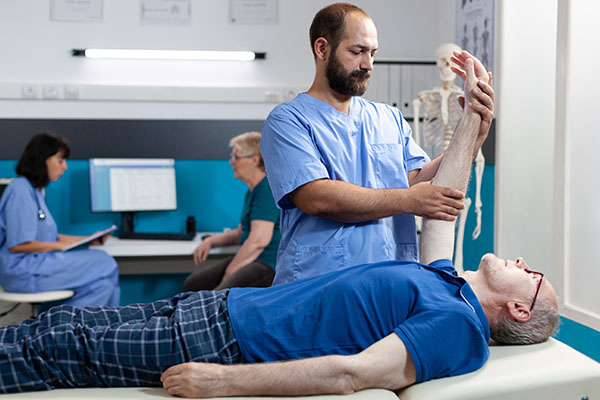
Social media and having the ability to scale it online with online classes and virtual reality classes and be able to teach with surgeons, peer stuff, all that’s going to change. I think that’s going to change in the next couple of years, I will say that. I guess I can’t talk too much toward it, but the future of education is upon us and that’s where we’re at. You’ve discovered that. Maybe you can talk a little bit towards that. You told me that during COVID, you exploded. Why is that? Why do think?
You nailed it. During COVID, things were shut down so much so that people saw that it has to be virtual. Everything that we do from the way we sell to the way we reach people to the way we help people has to be virtual. We knew that before COVID. We didn’t know that COVID would make this catalyst of, “Let’s fast forward things 3 to 5 years ahead of time.” We knew that at some point, it’s going to make more sense to do things virtually than trying to come up with these in-person ways of doing things or doing any business.
We took advantage of that by saying, “Let’s make sure all the services we provide, and not even just services, from this show to any interaction, is easily accessible virtually.” COVID hit. When you’re already designed to go that direction and make things work that way, and then everybody jumps on a platform to work that way, it’s inevitable that you’re going to expand significantly, which is what happened with us.
It also happened with other sales reps that were online and were preaching a little bit. During COVID, things exploded for them as well. One thing I like to laugh at is when we started our show, it was 2020 and there were maybe 6 or 7 medical sales podcasts. We were one of them. Now, there are maybe 36 or 37. That literally happened during COVID. Why did that happen? It’s because people realized, “I can do so much more and I can help so many more. Whatever value I have to bring, I can offer it to so many more people right here.” That’s the direction it’s going to continue to go in. As you said, we’ll see if there are more reps or less reps. We will see.
I remember when I first started in 2005. The 40 years in reps were saying, “Reps are going to be gone in 5 to 10 years.” Here we are now, it’s growing. The rep is always going to bring value no matter what. Even in these spaces, even if things go more AI, as you said with robotics, and as the tech continues to grow, you’re still going to need a rep to bring it into an account and get them using everything that the company has to offer to be used. Since COVID, people now realize that virtual is only going to grow. We have to continue to go virtual. This COVID can happen again. We want to be in front of it this time. We’re living the future, Joe.

It’s one day at a time, so that’s perfect for me. I’m a visionary in the sense of what I want to build and thinking down the road. The future for an orthopedic sales rep is one day at a time. I try not to think about that too hard because if all the sales reps are gone, in my opinion, they all have to be gone or I’m not going to have a job. If there’s one left, I want to fight for that position because that’s all I know. At least, I’m going to put my name in the hat. We’ll see. I might get knocked out.
We’ve gotten to hear how much has gone into the rep you are now. It’s a beautiful story because I think anyone is going to learn that, “Joe has experienced a lot to be the person he is now.” Tell us a little bit about the personal side of Joe. How do you make all this work? Earlier, you were talking about kids and games so you would think a single person is the only person that can do this job, but that’s not your case. Tell us the other side of Joe.
I have a lot of passions and hobbies. I’m huge on fishing. A little boy who’s seven who in summer caught his biggest snuck. He caught a 45-inch snuck. That is what I live for. For me, that’s it. I have a little girl, Zoe, who’s trying to get on a soccer field. She’s sitting there in Scooby Snacks. I’m Mr. Total Competitiveness. To have a different side when you have a little blonde-headed, curly hair, blue-eyed little girl that’s like, “Daddy, I want to sit, watch, and eat Scooby Snacks on your lap instead of going and playing soccer.” I’m like, “No. Worst-case scenario, you need to sit with your team. You can’t be on my lap on the sidelines.” What are you going to do?
Joe Testa likes to try and live for his kids right now. For me, that means trying to create time for them. That’s become a challenge for me and my team. Organically and indirectly, that’s a huge reason as to why I made a change away from a different company. I tried to do something and scale in a different way. Ultimately, tech has given me a lot of freedom to try and scale my team to the capacity that we’re running. They have time for their family and I have time for my family. As we grow, we add guys to the way in which our team needs it. Time is important, too, because you can’t just run at 100 hours a week for a decade. If you done that, it’ll bury you. At the end of the day, you can’t do it forever.
Ultimately, it becomes less about sales and money. It becomes more about, “How do I create more time for myself?” That’s the type of question I would ask a company. One thing that has changed through COVID is people don’t want to go and go to work. Jobs have become easier. This job, through COVID, went in with no protection or PPP. Trauma is there. We don’t know what COVID is, but this patient broke themselves and you have to fix them. Here you go. That was a scary time.
I try to play golf, I watch my little boy play baseball, and I try to spend as much time as possible outside of orthopedics as I can. At the end of the day, when I get up in the morning at 5:15 and there’s surgery to be there, someone has to be there. My family sacrifices quite a bit. I need to be successful for them. They’re the unsung heroes, not me, because, at times, there’s a guy looking like, “Where’s Daddy?” To be real with you, it’s hard. I try to think, “Does that make sense as a father to do that?” The answer is yes, absolutely because I’m doing what’s best for my family and my thing in the end.
[bctt tweet=”Orthopedic sales reps are the unsung heroes.” via=”no”]
It’s funny because the reason I write is I got up one day and I wrote on LinkedIn and post it. I then decided, “What am I really doing?” My goal for everything I write on the internet is to document content for my kids so if I were to die tomorrow, which is a dark picture. When you do 10,000 surgeries over the last 10 years, you start to realize that your life could change if you get in a car accident tomorrow, you step off a ladder the wrong way tomorrow, or when you get hurt, your life changes. I try to live for today. That means not a whole lot of sleep and a lot of vicariously through my kids. My boy hit two home runs, so that’s it for me as a coach.
That’s a profound statement. As a content creator myself, I thought about it. I want to make sure whatever I’m saying here makes sense because one day my kids will be able to look at it. I’ve never thought about the way you said it, “This is my documentary.”
This is my testimony.
This is my testimony for my kids. That’s profound. You just got yourself 50,000 more followers from anybody that hears you saying that. That alone makes me want to make sure I’m seeing every post you put up every single day. That’s great to say. Any content creator tuning in can take that home. I love that. Joe, this has been fantastic. Leave us with one thing. Again, people that are tuning in want to get into the industry, are in the industry, and are leading the way. What’s one message you want to leave with the audience before I take you through the lightning rounds?
Attitude is everything. That was something my dad told me. I talk about it being a coach for my little kid. I told that to one of my kids. The kid had a poor attitude. I’m trying to put the catcher’s gear on him and he would not put a smile on his face. As a rep, at the end of the day, if you can do nothing else, make sure your instruments and implants were there and make sure you have a positive attitude. If you’re positive, you’re going to make people around you positive. If you’re negative, that negative vibe breeds like wildfire.
[bctt tweet=”If you’re positive, you will make people around you positive. If you’re negative, that negative vibe breathes like wildfire.” via=”no”]
My personal goal is, no matter what, if you’re in sales, you can’t have a bad day, especially in OR when you’re setting the tone and it’s about the patient and surgeon. When you step between the lines, call the time out, go in, do your job, and get up in the morning. You’re like, “I just do know. Even if my body hurts. I’ve been doing this 5, 6, 7, or 10 days in a row.” Attitude is everything. It’s a one-sentence statement that goes, “That’s it. You set your mind. You reset. That’s what it is.”
Joe, we’re going to have a little bit of fun before we end it. I’m going to ask you a series of questions. I’m going to give you no time to think about it, so you got to give me your answer in ten seconds or less. Are you ready? First question. Best book you’ve read in the last six months?
That’s a good book. Is that a reread or a new read for you?
I’ve read parts of this. I had a dear friend from Exactech send this to me. We were talking about it on the phone. I read it, but I wanted to read it again for something my son was going through. She was kind enough to send that.
It supports everything you’ve shared. That’s a great book. Best show or movie you’ve seen in the last six months?
I would say Top Gun, but that’s what everybody is saying on there.
I still haven’t seen it.
It was epic.
Everybody is saying that. My kids have seen it and they’re telling me it’s epic, so I need to get on it.
One of my surgeons put that in perspective to me because there was this whole thing during COVID. He was yelling at someone that wasn’t wearing a mask that was on the thing. I said that to one of my surgeons, Charlton Stucken. I’m like, “I don’t understand why he went nuts on this guy.” He goes, “What do you mean nuts? Tom Cruise is trying to create the greatest film that’s ever been made and it’s during COVID. If one guy’s not wearing a mask, you can’t fire him. What do you mean you don’t understand?” You get goosebumps seeing it. Honest to God, I cried during that movie.
Don’t tell me anything. I will watch it.
What is wrong with you? How many people have to tell you? Let me ask you a question. What’s your favorite movie that you’ve seen in the last six months?
I got to be honest, I haven’t been the most of the movie guy. I’d have to say it’s a TV show. The best TV show I’d say in the last six months, believe it or not, my kids got me onto it, and that was Stranger Things.
I haven’t seen it.
It was shockingly good. I was surprised. When your kids say, “Dad, you got to watch this.” I was pleasantly surprised. It was good. Best meal you’ve had in the last six months?
I don’t know. I don’t cook. I had these biscuits that were good and they had cinnamon butter. I’m a huge sweets guy. For me, it’s all about desserts. It was biscuits and cinnamon butter.
That sounds delicious. My sweets is ridiculous. The last question, the best experience you’ve had in the last six months?
I just got back fly fishing from Vail. There’s a guy Chris Wu that’s up there. Him and I had been fishing for the last few years. It was awesome. I get to turn the phone off for one day. It was super peaceful. We’re on the Roaring Fork. We went down the river. You don’t have a care in the world. There are not ambulances going to the hospital. There are not hip fractures that you’re having to plan for. There are not a million phone calls. You don’t have your kids tagging and yelling at you. You just go down a river without a phone. The fly fish and it doesn’t suck that we caught 50-plus fish. That for me is hard to beat.
Joe, I love having you on the show. We’re going to be continuing to follow you on LinkedIn.
Thank you. I’m going to continue to ramble on LinkedIn.
Keep doing what you’re doing. You’re doing amazing things out there.
Appreciate it.
That was Joe Testa. There’s so much to draw from in that episode. If you’re someone that’s interested in orthopedic device sales, you have a clear picture of what you’re getting yourself into and what’s going to be expected of you. It’s a wonderful episode. I’m so glad he spent the time to share with us. You might be tuning into this and you might be thinking, “That’s exactly what I want to do,” or you’re saying to yourself, “I know I don’t want to do that.” Whatever question or statement that’s come to your mind after this episode, one thing is still clear, you want to be in medical sales.
Maybe you don’t know which medical sales is right for you or you don’t even know which type of medical sales exist. You’ve tuned in to this show for a little while. You’ve gotten a glimpse, but you’re still unclear. If you want to get into the medical sales industry and you want to find the field that’s for you and truly get a position in a reasonable amount of time, then you need to visit EvolveYourSuccess.com. Select Attain Medical Sales Role, submit an application, and have a conversation with someone from the team. Let’s help you get into the role you deserve.
Half of the journey of medical sales or getting to medical sales position is truly understanding what’s available and what’s right for you. That’s something that we champion and we do very well here at Evolve Your Success. Don’t wait. Don’t think. Don’t wonder. Don’t wish. Just go to EvolveYourSuccess.com, select Attain Medical Sales Role, fill out the application, and have a conversation. Learn where you’re supposed to be and learn a fantastic and fast way to get there. As always, we do our best to bring you innovative guests. Make sure you tune in next time for another episode.
Important Links
About Joe Testa
 Joe Testa is a well-known influencer on the LinkedIn platform, where he regularly shares his expertise on orthopedic medical sales. Based in Florida, Joe currently works as an Orthopedic Sales Consultant at Exactech, a global medical device company that develops and markets orthopedic implant devices. With a deep passion for orthopedics and medical sales, Joe has become an authority in his field, earning multiple awards for his outstanding performance as an orthopedic sales consultant. His skills in coaching, project management, outside sales, and sales management have helped him build strong relationships with his clients, providing them with the best possible service and support. Through his social media presence and impressive track record, Joe Testa has become a trusted and respected leader in the orthopedics medical sales field.
Joe Testa is a well-known influencer on the LinkedIn platform, where he regularly shares his expertise on orthopedic medical sales. Based in Florida, Joe currently works as an Orthopedic Sales Consultant at Exactech, a global medical device company that develops and markets orthopedic implant devices. With a deep passion for orthopedics and medical sales, Joe has become an authority in his field, earning multiple awards for his outstanding performance as an orthopedic sales consultant. His skills in coaching, project management, outside sales, and sales management have helped him build strong relationships with his clients, providing them with the best possible service and support. Through his social media presence and impressive track record, Joe Testa has become a trusted and respected leader in the orthopedics medical sales field.
Love the show? Subscribe, rate, review, and share!
Join the Medical Sales Podcast Community today:
